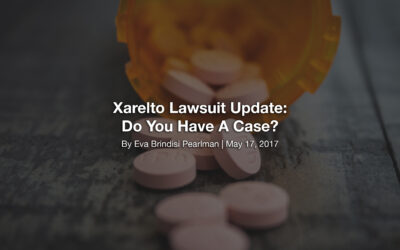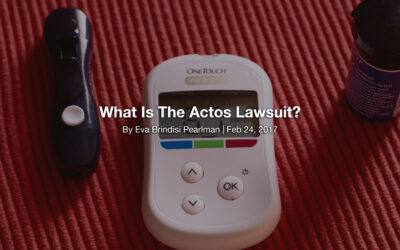For millions of Americans, Lexapro provides relief for depression symptoms. In fact, the drug earned $355 million in 2011 alone. Lexapro is medication commonly prescribed to treat those with depression and anxiety disorder. First introduced in its generic form as escitalopram, Lexapro is among the class of antidepressants. It was initially prescribed to adults but later was approved for adolescents 12 years and over. However, recent reports have surfaced linking the antidepressant Lexapro with birth defects if the user is pregnant while taking the drug. A 2015 study discovered that taking Lexapro during pregnancy increases the risk of the child developing autism by 200 percent and has linked the drug to many other birth defects that could be detrimental to the child’s life.
The Link Between Lexapro and Birth Defects
Though there are no complete studies of Lexapro being unsafe for pregnant women, animal studies have concluded an adverse effect on the fetus. The FDA recommends Lexapro for pregnant women only if the benefits outweigh the risks. Though experts claim the risk for birth defects is low, researchers have found that antidepressants increase the risk of heart defects in infants, including persistent pulmonary hypertension of the newborn. Most infants that contract this illness pass away. Others fact disabilities like cerebral palsy, seizures, and hearing loss. The FDA released a warning in 2006 stating babies born after expecting mothers take Lexapro are six times more likely to be born with pulmonary hypertension. Many infants also suffer from congenital heart defects if their mother takes Lexapro while pregnant. This includes atrial and ventricular septal defects, which forces organs to compensate for lack of blood flow. In addition, Lexapro has been connected to neural tube defects in infants, which can cause a malformed brain and skull, respiratory distress, cleft palate, or even autism.
If a child has autism, it could potentially cost a family about $2.4 million dollars over the child’s lifetime for things such as care, education, and therapy. The highly emotional effects as well as financial costs can be devastating for unsuspecting families; which is why thousands are coming forward to join the lawsuit against Lexapro. Forest Pharmaceuticals had this information, and marketed the drug as safe for pregnant women anyway. They put your life and your unborn infant’s life at risk for a profit.
Additional Lexapro Side Effects
Patients who have taken the Lexapro have also suffered from a series of other side effects. Take a look at the common Lexapro side effects:
- Headaches
- Nausea
- Vomiting
- Dry Mouth
- Insomnia
- Decreased appetite
- Weight gain
- Tingling sensation in hands, feet, arms, and legs
- Vivid dreams
- Suicidal thoughts and tendencies
If you or someone you know has taken medication for depression and anxiety, Lexapro, during pregnancy, and had a child born with birth defects, you may be entitled to substantial compensation. Brindisi, Murad, Brindisi & Pearlman, personal injury lawyers of Central New York, are accepting cases of victims suffering from the side effects of Lexapro now. Contact our office for a free Lexapro lawsuit consultation today. The manufacturer of Lexapro may have knowingly put the life of your infant at risk. Let the attorneys at The People’s Lawyer fight for you. Contact us today by filling out the above form or calling our office at 1-800-8LTB-LAW.
Share this blog with your friends…
Tags: Lexapro

CONTACT US FOR A FREE CASE EVALUATION
Related Blogs
Invokana: Know The Risks
Invokana, also known as canagliflozin, is an oral diabetes medication that works to control blood sugar levels. Combined with diet and exercise, the drug is prescribed to treat individuals suffering from Type 2 diabetes. While it does help some, it does come...
Xarelto Lawsuit Update: Do You Have A Case?
Millions of Americans suffer from blood clots and strokes every day. In order to prevent these conditions from occurring, physicians often prescribe a blood thinner. A popular type of blood thinner medication is Xarelto. Many choose Xarelto over other blood...
What Is The Actos Lawsuit?
For millions of individuals suffering from Type 2 diabetes, a pioglitazone provides assistance for those struggling to control high blood sugar. Among the common pioglitazones is Actos. After Actos was first approved by the FDA in 1999, the drug made billions for its...
Injured In An Accident?
Contact BMBP Today!






BRINDISI, MURAD & BRINDISI PEARLMAN
UTICA OFFICE
Utica, NY 13501
OFFICE HOURS
MONDAY – FRIDAY
9AM-5PM


